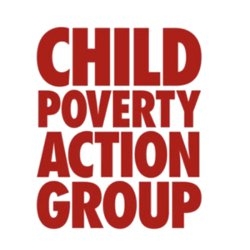
Child Poverty Action Group (CPAG) says the new Child Poverty Monitor 2017 report shows some improvements in rates and number of children in material hardship, but the figures should be viewed with a degree of caution.
The new report, derived from data collected mid-2016 from income over the previous 12 months, shows that the numbers of children under the after housing costs (AHC) moving lines of 60% and 50% of the median household income have barely budged since the beginning of the 2000s. The numbers under the very low 40% have increased significantly. All income measures of child poverty remain dramatically worse than three decades ago.
The hardship figures show that out of every 33 children, four children go without seven of the things they need, and two of these children go without nine or more of the things they need. That is unacceptable in a country with a flourishing economy.
The reduction in hardship since the last report may reflect increased charity intervention such as that provided by KidsCan and Variety. KidsCan is now having to support families with basic needs such as beds, sanitary products, toothpaste and brushes. Others like the Auckland City Mission and Variety are overwhelmed with demand from families for the bare basics.
“While charities provide vital, immediate limited support for these children and their families, real permanent change requires long-term commitment from government to support family incomes and alleviate housing costs,” says Associate Professor Mike O’Brien, social security spokesperson for CPAG.
“The high and distressing rates of child poverty are primarily the result of a range of government policies which have treated children and families badly.
“Policy can make an important difference, so all parties need to commit to putting in place a range of policies which will reduce poverty – and these policies need to have an enduring and long-lasting impact for children.
It will be a costly exercise to implement such policies, but it will be a long-term solution to improve the wellbeing and outcomes for children.
To remedy the inadequacies of Working for Families (WFF), CPAG estimates a minimum of $1.2 billion is required. $700 million is needed to restore the real spending that was eroded under the previous Government and another $500 million is essential to make a difference for all the lowest-income families by enabling them to access the full tax credit package.
“If we are serious as a society about Christmas being a time for children, then the best present we can give them is for Government to commit to introducing and continuing a range of policies which will, over time, reduce these numbers significantly,” says O’Brien.
“We need to see poverty numbers declining on all the measures. This requires a sustained, long-term commitment from all political parties to ensure families are always able to have freedom from poverty and be able to maintain a decent standard of living when they fall on hard times.”




